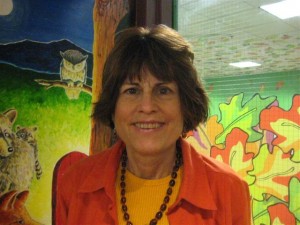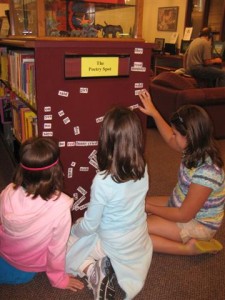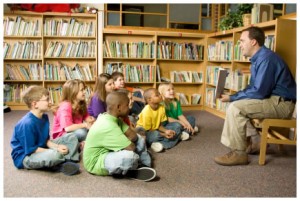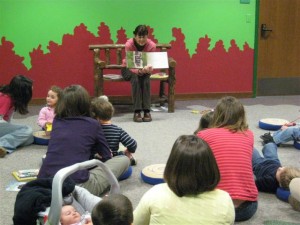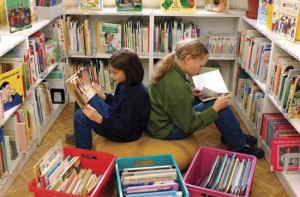An Interview with Laura Clark – Children’s Librarian
Laura Clark, of the Saratoga Springs Public Library, is a longtime children’s librarian with nearly 40 years of experience leading story groups and parent/child workshops. Today, she’s sharing her expertise with parents on how best to use library resources to encourage children to love books.
How can parents best use library resources to promote language development?
The best thing parents can do is to read to their children. Make reading as natural a habit as brushing your teeth. And go beyond that as well to engage the child in the story. Ask questions like, “What do you think might happen next? If you were Little Red Riding Hood, would you be scared to go into the woods?”
It helps to find repetitive books like “The Little Red Hen” and “One Foot, Two Foot, Red Foot, Blue Foot.” This repetition gives children a feeling of being in charge and a delightful sense of anticipation. As well, read books that lend themselves to having the kids repeat animal sounds–like “Ask Mr. Bear.”
And as awful as this is when you are doing it, kids like the reassurance of sameness – for them reading the same story is NOT boring, although it very well be for the parent!
Another thing – our library has picture books where you can listen to the CD and then turn each page of a book to “read” the book. This is not always affordable, but it provides a way for children to behave independently. I also recommend listening to and singing along with music CDs in the car.
How might parents use library resources to network with other parents of children with speech disorders?
Many libraries have support groups or have rooms available for private support groups. If rooms are available you could form your own. We do have play groups sponsored by the library which are a great way for parents to meet and network. Our parent/child workshops also feature a resource person (dentist, hearing, speech, nutritionist – it varies from week to week). But for example, private folks can have their own groups. There is an autism support group, a homeschoolers group, etc.
Your library has a very active story group schedule. How do you keep a large group of children engaged in a book?
When I monitored a story hour for autistic kids, some of whom were verbal (Aspergers) and some who weren’t, I learned that it helps to have a variety of books to read. The librarian I monitored started with a simple picture book or an activity book such as Eric Carle’s “From Head to Toe.” With this book, you read and kids do the activities. The librarian always had the same puppet start with the same song and varied the reading with activities like songs and movement activities.
Do children with speech disorders or other special needs attend story groups and do you make any special changes to the story group format for them?
We try to make adaptations, but it’s a challenge. One of the reasons is that most of these high needs kids are identified fairly early on and already have a full schedule of therapy sessions. That is why I am going to start a Sensory Story Hour this year. For autistic kids, the parent really needs to be present and they would stand out in many of our groups in which parents of older kids don’t attend. However, we are gradually going over to more family inclusive story hours which would fit the bill better.
Not all parents are lucky enough to have such a large, vibrant library community near them. How might parents encourage their local libraries to start story groups and other literacy campaigns?
Small libraries are most likely understaffed and would welcome the help. You don’t have to be an expert! For a while, we did have a parent of an autistic child organize a monthly play group – she just asked. Also, the parents could ask the speech provider if they would be willing to get something started or help the librarian start something. A library setting does not have the labeling effect that going to a specialist has and folks often feel more comfortable in a neutral setting – this is true for any group.
Are there any particular stories or authors you’d recommend?
Don’t overlook nonfiction. Boys are often more attracted to books that are about the real world and there are many nowadays written on a fairly easy level. The best thing to do is to go to the nonfiction area and look for skinny books with lots of pictures.
Laura Clark also provided a list of great books for young readers, which features books like “I Know It’s Autumn” by Spinelli, “The Bus for Us” by Bloom, “Trucks: Whizz! Zoom! Rumble!” by Hubbell, and “Who Hops” by Davis. She’s also a big fan of Dr. Seuss easy readers and Eric Carle’s books. Thanks, Laura, for providing your wonderful recommendations and expert advice!


